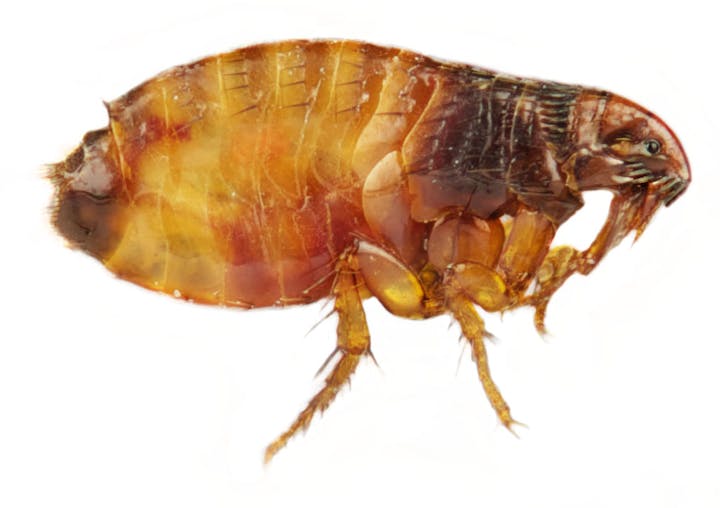Flea-borne Typhus

Flea-borne typhus is caused by the bacteria Rickettsia typhi and Rickettsia felis, which can be present in fleas and flea feces.
Flea-borne typhus is primarily found in fleas that live on:
- Feral and domestic cats
- Dogs
- Opossums
- Rats
- Raccoons
- Skunks
- Squirrels
- Rabbits
Fleas defecate as they feed. Humans can be infected when flea feces containing the bacteria are scratched into the bite site, other wounds, or are inhaled, eaten, or transferred to the eye.
Animals in Orange County can be infested with fleas year-round in Orange County and may not show obvious symptoms, so using flea control on indoor and outdoor pets is the best way to prevent exposure to flea-borne typhus.
Regularly inspect your pets and their bedding for fleas. The presence of flea feces in pet fur, called “flea dirt,” may be the first sign of a flea infestation. Pet owners should keep pets up-to-date on a flea control and heartworm preventative program.
For additional information, go to What Steps Can I Take to Avoid Contracting Flea-borne Typhus?



